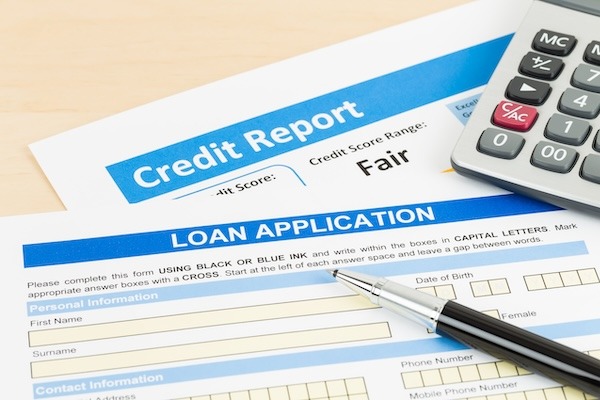How to Streamline Your Finances With Simple Automation
Did you know that the average American spends over 2 hours per week just managing basic financial tasks? That’s more than 100 hours annually; time...
Whether you're covering unexpected expenses, making a big purchase, or just need extra cash, our personal loans offer simple, flexible funding tailored to your needs.
Simplify your finances with a loan that combines multiple payments into one. Our consolidation loans help reduce stress and keep your budget on track.
Upgrade your living space with financing designed for renovations, repairs, or remodeling. Our home improvement loans help you enhance your home’s comfort, value, and functionality—on your terms.
Explore expert insights, financial tips, and strategic guidance from the Symple Lending team. Our insights and resource articles are your go-to source for empowering content that helps you make informed decisions on your journey to financial freedom.
Stay up-to-date with the latest press releases, media features, and major announcements from Symple Lending. This section showcases how we're making headlines and driving innovation in the lending industry.
6 min read
Breanne Neely : Updated on August 22, 2025

Table of Contents
Did you know the average American manages four credit cards, contributing to a total household credit card debt that exceeded $1 trillion in 2023? When it comes to tackling debt or financing major expenses, two popular options emerge: consolidation loans and personal loans. While they might seem similar at first glance, these financial tools serve distinct purposes and suit different situations.
Understanding the nuances between consolidation loans and personal loans can make the difference between financial relief and added stress. Whether you're looking to streamline multiple debts into one manageable payment or need flexible funding for various life events, choosing the right loan type is crucial for your financial well-being.
A consolidation loan helps borrowers combine several debts into one simple loan. Instead of managing multiple payments each month, you'll make a single payment, often at a lower interest rate than your existing payments.
A personal loan provides a lump sum that you can use for almost any expense. Unlike consolidation loans that focus solely on combining debts, personal loans offer flexibility - you can fund home improvements, cover emergency costs, fund a major life event, or more.
When comparing these loans, interest rates tell an important story. Personal loan rates typically range from 6% to 36%, while consolidation loans often offer lower interest rates than your existing debts. Both consolidation and personal loans usually come with fixed interest rates, meaning your monthly payment stays the same. Your credit score plays a big role - better scores mean lower rates.
When taking out a consolidation loan, you'll typically get 1-5 years to repay. Personal loans offer more room to customize, with repayment plan options from 2-7 years. Both options come with set monthly payments that don't change over time. Personal loans let you pick a schedule that fits your budget.
Getting approved for any type of loan typically needs a good to excellent credit score and a solid history of paying bills. Personal loans may accept lower credit scores, though rates will be higher. Lenders check your debt-to-income ratio for both loan types, but consolidation loans pay extra attention to your existing debt amounts.
Personal loans typically range from $1,000 to $50,000, though some lenders offer up to $100,000 for borrowers with excellent credit. Consolidation loans match the total of your existing debts - no more, no less. Personal loans give you more flexibility on the amount, while consolidation loans stick to what you already owe.
When you apply for either loan type, you might see a small, temporary drop in your credit score from a hard credit inquiry. Making your payments on time helps build a positive payment credit history. If you use consolidation strategies to pay off credit cards, your credit utilization ratio could improve right away. Missing payments on either loan can hurt your score significantly.
Both personal loans and consolidation loans may charge origination fees, typically 1% to 8% of the loan amount. Late payment fees apply to both loan types, usually $25-$50 per missed payment. While uncommon, some lenders charge prepayment fees if you pay off your loan early.
Consolidation loans have one specific purpose: paying off existing debts. The lender often sends payments directly to your creditors. Personal loans give you more options - you can fund home repairs, medical bills, weddings, or debt payoff. However, most lenders won't let you use personal loans for college tuition or investing.
Most loans don't require collateral, making them unsecured. However, if you want lower rates, you can back either loan type with assets like your car or savings account. With secured options, you risk losing your collateral if you miss payments.
Your debt-to-income (DTI) ratio shows how much of your monthly income goes toward debt payments. Most lenders prefer a DTI below 36%. With consolidation strategies, combining debts into one payment can lower your DTI and help you qualify for better rates.
Both loan types offer online applications where you'll share your income, employment, and debt information. Personal loan customers often give same-day decisions, with money arriving within 1-3 business days. Consolidation loans might take longer since lenders need to coordinate with your existing creditors.
Consolidation loans can cut your interest costs by replacing high-rate debts with a lower single rate. While personal loans might offer interest savings over credit cards, the real benefit comes from how you use the loan. Picking shorter terms with higher payments leads to less interest over time.
Consolidation loans often reduce your monthly payment by stretching repayment over a longer period. Personal loans may increase or decrease your payment based on the terms you choose. Lower payments free up cash flow but mean paying more interest overall, while higher payments help you save on interest costs.
Personal loan terms typically range from 2-7 years, while consolidation loans typically run from 1-5 years. Shorter terms mean higher monthly payments but less interest paid overall. Longer terms provide smaller monthly payments but cost more in total interest charges.
Making multiple debt payments simple by combining them into one monthly bill helps your budget planning. You'll often get a lower interest rate than your current debts, which can reduce your total costs. Your credit score may go up as your credit card balances drop. Plus, one fixed monthly payment will make tracking your progress easier.
While consolidation strategies can help manage debt, they come with risks. You might pay more interest over time with longer terms. The loan doesn't fix the spending habits that created the current debt. Many borrowers face the temptation to rack up new charges on their cleared credit cards. Some loans include fees that can offset your interest savings.
Personal loans give you complete freedom in how you use the money - whether it's for home repairs, medical bills, or debt payoff. You'll get fixed monthly payments that don't change, making budgeting simple. Most personal loans don't need collateral, and many lenders can provide funding within a few business days.
Consolidation loans often come with higher interest rates, sometimes reaching 36%. You might face origination fees that add 1-8% to your total cost. Without good credit, qualifying for reasonable rates can be tough. The easy access to funds might lead to taking on more debt than you can handle.
A consolidation loan makes the most sense when you're managing several high-interest credit card balances. It's particularly helpful if you have good credit and want to get organized with your monthly bills. The key is staying committed to avoiding new debt.
Personal loans work best when you need money for multiple goals at once - like funding home repairs while paying off some credit cards. They're also good if you want quick funding without the rules that come with consolidation loans.
Your credit score strongly affects what you'll pay for either loan type. Excellent scores (720+) typically help you get more favorable rates, while scores below 670 can mean higher costs. Most lenders look at your FICO score when deciding your rate and loan amount. Credit unions may offer better terms for lower scores.
A consolidation loan is built to merge several debts into one. You can combine credit cards, store cards, and other debts under a single payment. Personal loans offer similar options but with added flexibility - you can merge debts while setting aside money for other needs at the same time.
If you have a lower credit score, secured loans can help you get approved by using collateral like your car or savings. Online lenders often work with poor-credit borrowers, offering more reasonable rates than traditional banks. Online lenders focusing on fair-credit customers might approve you, though rates will be higher.
Both loans can build your credit score when you make payments on time. With personal loans, the key is making sure you don't use them for non-essential spending that might strain your budget. Consolidation strategies work best when paired with changes in spending habits - otherwise, you might end up with more debt than before.
When deciding between a consolidation loan and a personal loan, your specific financial situation and goals should guide your choice. Consolidation loans excel at simplifying debt management and potentially lowering interest rates, making them ideal for those juggling multiple high-interest debts. Personal loans offer more flexibility and faster funding, perfect for those needing funds for various purposes.
Remember that either loan type is just a tool – its effectiveness depends entirely on how you use it. Success with any loan requires a solid repayment plan, responsible spending habits, and a clear understanding of your financial goals. Take time to compare your options, read the fine print, and choose the solution that best aligns with your long-term financial health.
Disclaimer: The information provided in this blog post is for educational and informational purposes only and should not be considered as financial, legal, investment, or tax advice. Symple Lending is not responsible for any financial outcomes resulting from following the information or ideas shared in this blog. Every individual's financial situation is unique, and we strongly encourage readers to take their own circumstances into consideration and consult with a qualified financial, legal, tax, and investment advisor before making any financial decisions. Symple Lending does not provide financial, legal, tax, or investment advice.

Did you know that the average American spends over 2 hours per week just managing basic financial tasks? That’s more than 100 hours annually; time...

Did you know that couples who regularly discuss money are twice as likely to report "very happy" relationships? It's true: financial harmony isn't...

Did you know that Americans spent over $26 billion on Valentine's Day in 2023? That's roughly $193 per person celebrating the holiday. Yet beneath...

Did you know that the average American carries over $5,000 in credit card debt, often paying interest rates that make financial progress feel like...

Did you know that a personal loan could both hurt and help your credit score—sometimes simultaneously? While most borrowers worry about the negative...

Ever wondered why juggling multiple debts feels more like a circus act than a financial strategy? It's not just about the money; it's about the...